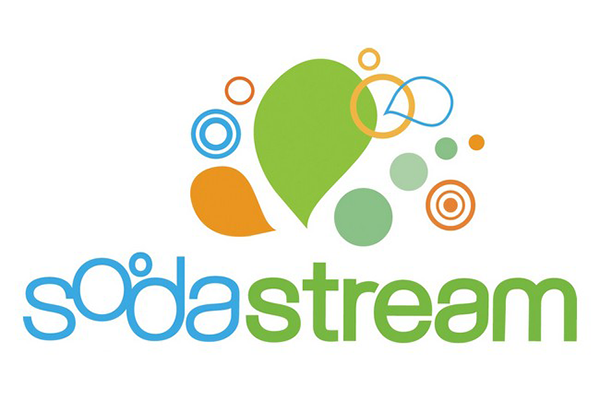Despite Coordinated Efforts by Big Beverage Players, SodaStream CEO Says the Company Will Not Be Silenced About the Shameful Use of Polluting Plastic Bottle
December 2016:SodaStream International Ltd. is under a global, coordinated attack by Nestlé and the bottled water industry, for its hugely successful viral campaign, “Shame or Glory”, which sheds light on plastic bottle pollution and advocates for using tap water as an alternative to disposable plastics.
SodaStream’s video has so far netted more than 50 million views and has been shared by celebrities and environmentally minded NGOs around the world.
During the past several days, SodaStream has received no fewer than six cease and desist letters from bottled water “front groups” that have taken issue with the campaign. The first such letter came from France, signed by Denis Cans, the CEO of Nestlé Waters, France, on behalf of the French National Federation of Packaged and Bottled Water.
The subsequent letters from the U.S.-based International Bottled Water Association and other European-based industry groups are all similar in content, reflecting the orchestrated nature of this attack aimed at trying to protect the huge and lucrative global $150 billion plastic bottled water industry.
Since receiving the growing pile of cease and desist letters, SodaStream is going on the offensive. “We will not let these industry groups and their threats stop us from speaking the truth and trying to save our planet,” said Daniel Birnbaum, Chief Executive Officer of SodaStream.
“These so called bottled water industry groups are simply fronts for major plastic manufacturers like Danone (Evian), The Coca-Cola Company, and Nestlé Waters, the world’s largest producer of bottled water. They all are trying to grow profits at the expense of the Earth. These groups, whose financial gains are a direct result of the 247 million plastic bottles they make every day, want to gag our message: that plastic bottles represent a very real, present day threat to our global environment. By sending these letters, the industry clearly wants to try to convince consumers around the world that there is something wrong with the high-quality, delicious tap water that is available in our homes and that was made possible in the U.S. by the Safe Drinking Water Act of 1974—and is regulated by the Environmental Protection Agency in the U.S. If anyone is misleading consumers and using scare tactics, it is them, not us. We won’t back down.”
The letters from the bottling industry attest that their plastic bottles are recyclable and claim that SodaStream’s “Shame or Glory” campaign is misrepresentative. However, it is well established that most of the 200 billion plastic bottles bought each year worldwide are not recycled. The EurActiv watchdog group reports that only 23 percent of plastic packaging is currently recycled in France, and Fast Company magazine recently noted that only 23 percent of plastics are being recycled in the U.S. The average recycling rate in Europe is 29.7 percent, a very low figure. Additionally, the practice of recycling reduces only a portion of the carbon footprint inflicted by the transportation, processing and production of these bottles and, according to The Carbon Trust, reduces the carbon footprint of a plastic bottle by a mere 20 percent. Recycling does not remotely eliminate the devastating effect of plastic bottles on our planet.
The effect of plastic pollution on marine life is particularly concerning. Since 1988, ocean conservationists have warned about the “Great Pacific Garbage Patch,” a floating island the size of Texas comprising improperly disposed plastic waste. According to the Greenpeace report, “Plastic Debris in the World’s Oceans,” more than 267 different species of seabirds, turtles, seals, sea lions, whales and fish have been documented as casualties of plastic ingestion or entanglement.
Each new letter from the bottled water industry has the same demand: that SodaStream cease airing its “Shame or Glory” video campaign, in which the brand advocates using fresh, local tap water to make sparkling water at home over the use of single-use plastic bottles.
The full video can be viewed at http://www.shameorglory.net. The video features a film production assistant on a mission to buy sparkling water from a local supermarket. The Game of Thrones actor Hannah Waddingham rings the bell of shame and repeatedly shouts “shame” at the assistant as she pursues him. When the assistant finally reaches the film set, Game of Thrones actor Thor Bjornsson explains the benefits of using a SodaStream machine and fresh, local tap water instead of the shameful habit of using and throwing away plastic water bottles. One SodaStream reusable carbonating bottle can replace thousands of single-use plastic bottles.
View Daniel Birnbaum’s, Chief Executive Officer of SodaStream, interview with CNBC here with full transcript here.
About SodaStream
SodaStream is the world’s leading manufacturer and distributor of sparkling water makers. It operates in 45 countries, and its products are available in more than 70,000 retail stores on five continents. SodaStream enables consumers to easily transform ordinary tap water into sparkling water and flavoured sparkling water in seconds. By making ordinary water more exciting and fun to drink, SodaStream helps consumers love their water. SodaStream sparkling water makers offer a highly differentiated and innovative alternative to consumers wanting to reduce bottled and canned carbonated soft drinks. SodaStream products promote health and wellness, are environmentally friendly and cost effective, and are customizable and fun to use. To learn more about how SodaStream makes water exciting, follow SodaStream on Facebook, Twitter, Pinterest, Instagram and YouTube, visit www.sodastream.co.za.





















































































